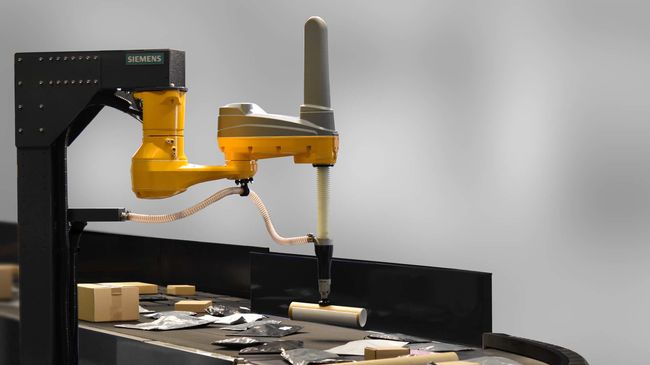Siemens is a multinational conglomerate corporation based in Germany. The company is the world’s largest manufacturer of industrial machinery. It is headquartered in Munich and has branch offices worldwide. This article will introduce you to the company’s products and services. Read on to learn more about Siemens. Founded in 1887, Siemens has over 20,000 employees. In 2006, it produced more than a trillion dollars worth of equipment. The company’s portfolio includes power plants, industrial machines, and industrial automation.
The streamlined management structure at Siemens is based on the CEO principle, which has been adopted at the top level. The company has also formed three new Sectors in January 2008, reducing the number of Groups from eight to three. It also plans to consolidate the administrative tasks of its 70 regional companies into twenty regional clusters, reducing the number of legally separate entities by 10% by 2010. This restructuring is intended to make Siemens more efficient and more innovative and streamline its overall structure.
While it is a global innovator, Siemens focuses on electrification, digitalization, and automation for manufacturing and process industries. The company has been developing technologies for more than 160 years and supports multiple American industries. The companies that are part of Siemens’ portfolio include GE and General Electric. For more information, visit the Siemens website. Its employees are working hard to meet the needs of customers around the globe. It’s a global company and has a worldwide reputation.
What You Need to Know About Siemens, the World’s Largest Manufacturing Company

The business divisions of Siemens are divided into six segments. In the USA, the company is led by Mike Bokina, vice president of human resources. In China, Barbara Humpton, the country’s CEO, leads the company’s strategy and engagement in the US. All these segments are crucial to the company’s overall success. However, the global structure of the organization makes this strategy a difficult one. And it’s one of the reasons why the group is struggling to remain competitive in the US.
Throughout its history, Siemens has been accused of bribery, corruption, and other illegal practices. In the US, it is a tax deductible business expense. But in the developing world, bribes are illegal and are subject to heavy penalties. Until recently, it was possible to hide the company’s bribes by setting up an offshore account in a tax haven. This allowed the company to pay a massive fine in Venezuela and other countries while maintaining its corporate social responsibility.
In 2005, Siemens became involved in a multi-national bribery scandal. This scandal was centered on the company’s dealings with the Greek government during the 2004 Summer Olympic Games. In addition, complaints by prosecutors in Liechtenstein, Switzerland, Germany, and Italy brought Siemens’ activities under legal scrutiny. In 2006, the US investigation focused on the company’s activities while it was listed on US stock exchanges. The German and Swiss subsidiaries were cited as the most guilty companies.
The company’s workforce is composed of men and women from a diverse demographic. Despite its diverse workforce, it is highly unlikely to be a politically correct or anti-American corporation. The company is owned by a wealthy German man. In 2015, the firm reported a record profit for the company. During the same period, it acquired several smaller, privately-owned companies. Among them, I.B.M., Rolm, and Wald.
The company has nine divisions. Some of them focus on medical equipment and other technologies, while others focus on the manufacturing side. Its subsidiaries also offer services in healthcare, manufacturing, and technology. The company also has joint ventures with Mitsubishi and Toshiba. Its latest business is Primetals Technologies. Its employees are a key component of the German economy. Its name is derived from the German word “Siemens” meaning “Siemens”.
The company was founded in 1847 and is headquartered in Munich, Germany. Today, it is the leading maker of medical diagnostics and automation equipment. It employs over 360,000 people and is part of the Euro Stoxx 50 stock market index. As of December 31, 2011, Siemens and its subsidiaries had global sales of 73.5 billion euros. Currently, it has a worldwide reach of 190 countries and employs 293,000 people. The company’s products include industrial equipment, transportation systems, and OSRAM lighting solutions.
In addition to manufacturing, Siemens has diversified into the energy and telecommunications sectors. Its products are used in manufacturing, transportation, and communication systems. Its innovative innovations are used by industries worldwide, including automobiles, power generation, and data and information systems. The company also manufactures electrical equipment, medical devices, and other consumer electronics. In addition to their product line, Siemens has also expanded into digital technologies. The company is located in Germany, Spain, and the U.S.

